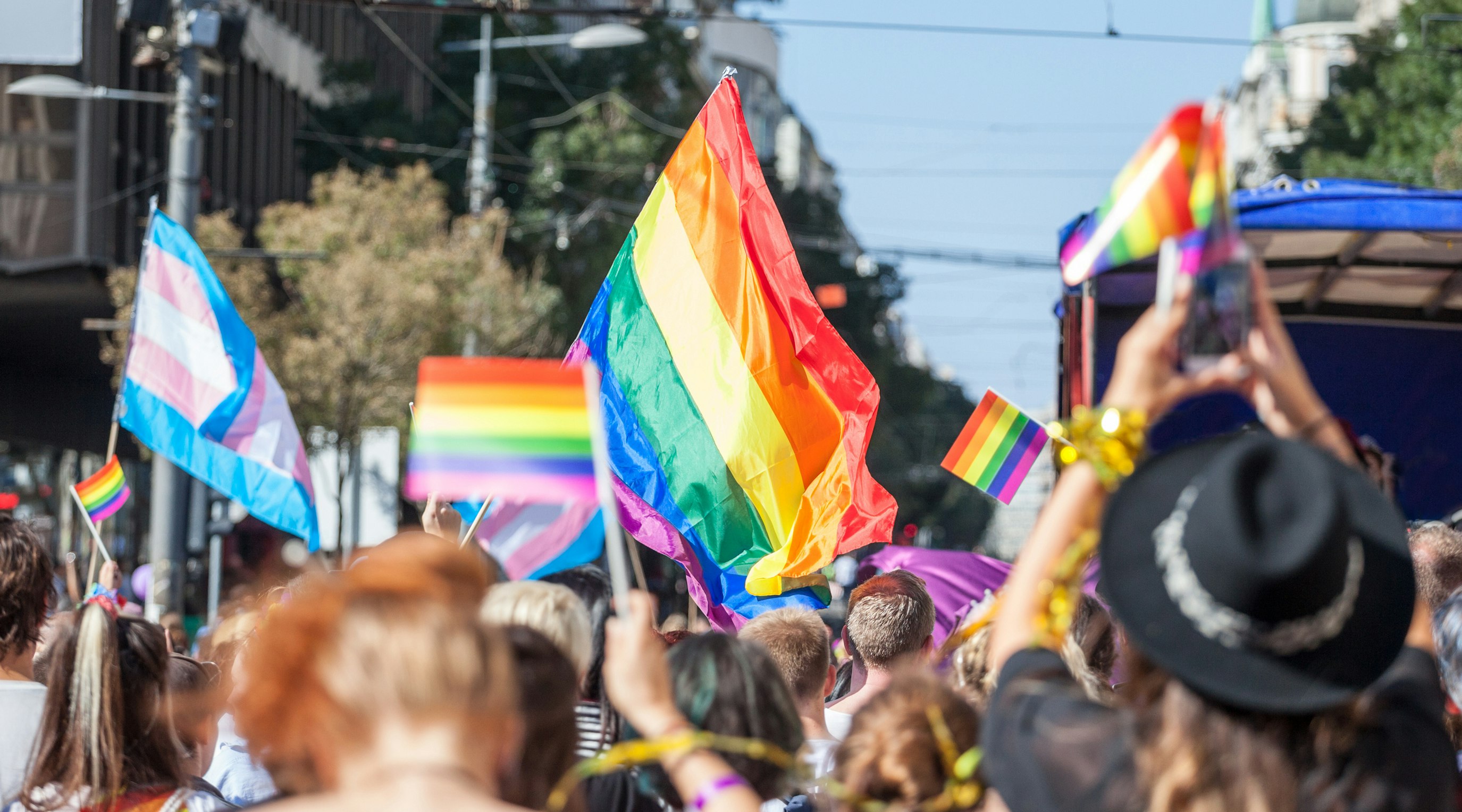Pride, PTSD, and plant-based approaches
6 min read
Emily Ledger
Each year in June, LGBTQ+ Pride events take place around the world. These events offer an opportunity to celebrate the LGBTQ+ community, honour their contributions, and recognise the ongoing struggle for equality. But June also marks PTSD Awareness Month and, as these two important events coincide, it is important to recognise the increased rates of PTSD among LGBTQ+ individuals, understand the reasons behind this, and improve awareness of available treatment options.
Contents
Celebrating Pride Month
The Pride movement, which has now spread across the world, can be traced back to the Stonewall Uprising of 28th June 1969. Also referred to as the Stonewall riots, the uprising took place outside the Stonewall Inn in New York City, following a targeted operation by the New York City Police Department. The Stonewall Uprising inspired other demonstrations around the US which eventually spread to other parts of the world, including the UK.
The UK’s first ‘Gay Pride’ march took place in London on the 1st July 1972 - the Saturday closest to the anniversary of the Stonewall Uprising. Since then, LGBTQ+ Pride marches, rallies, and other events have been organised annually, typically in June, in cities across the country. These events aim to bring together people from all backgrounds to celebrate progress, advocate for LGBTQ+ rights, and highlight the challenges that continue to face members of the community today.
PTSD Awareness Month - What is post-traumatic stress disorder?
Post-traumatic stress disorder (PTSD) is a type of anxiety disorder that may develop in individuals who have experienced or witnessed a traumatic event. People with PTSD may relive the event or events through flashbacks or nightmares. Other symptoms of PTSD include feelings of anxiety and/or depression, and sleep disturbance. The condition can have a significant impact on quality of life and physical and emotional well-being.
June is also PTSD Awareness Month, a month-long awareness event, that draws to a close this year on PTSD Awareness Day which is on the 27th June. The event, which has been hosted by PTSD UK since 2014, aims to support those living with PTSD and complex PTSD (C-PTSD) and to raise awareness around the causes, symptoms, and treatments of the conditions.
PTSD in the LGBTQ+ community
PTSD does not discriminate. It can affect people of all ages, genders, and sexual orientations; however, PTSD is significantly more prevalent among members of the LGBTQ+ community. Studies indicate that up to 48% of LGB individuals and 42% of transgender and gender-diverse individuals may meet the criteria for PTSD, compared to 4.7% of the general population. But why is this?
Increased incidence of trauma
LGBTQ+ people are subjected to heightened levels of discrimination, harassment, abuse, and stigmatisation. Unfortunately, these trends persist, despite growing acceptance and advances in LGBTQ+ rights in many parts of the world. The ‘LGBTIQ equality at a crossroads: progress and challenges’ report, a survey of more than 100,000 LGBTQ+ people across Europe published in 2024, aimed to capture the impact of these experiences.
Some of their key findings include:
- Discrimination: Over a third of respondents reported facing discrimination in their daily lives; however, only 1 in 10 are said to report these incidents.
- Bullying: Over two-thirds of the respondents in this study experienced bullying at school.
- Harassment and violence: More than half reported hate-motivated harassment, while more than 10% reported experiences of violence.
- Mental health: Over a third of respondents reported having suicidal thoughts, which rose to more than half among trans, non-binary, and gender diverse individuals.
With such high incidences of trauma among LGBTQ+ individuals, it is vital that healthcare services prioritise inclusivity to ensure the effective treatment and management of PTSD and related symptoms.
Treatments for PTSD
Treatment of PTSD and its symptoms typically involves a combination of pharmaceutical and psychological therapies. This may include trauma-focused cognitive behavioural therapy and eye movement desensitisation and reprocessing (EMDR). Conventional medical treatments for PTSD include selective serotonin reuptake inhibitors (SSRIs), such as sertraline and paroxetine. Additional therapies may be prescribed to manage PTSD symptoms such as sleep disturbance and anxiety.
While these treatment options can be effective at managing the impact of PTSD, this isn’t the case for all patients. Moreover, certain medications typically used to treat PTSD may have intolerable side effects for some. If this is the case, patients may be left to seek alternative or complementary treatments to better manage their symptoms.
Medical cannabis and PTSD
Since medical cannabis was legalised in the UK in 2018, cannabis-based medicines have been available on prescription for the treatment of a range of conditions, including PTSD. Such treatment options may be considered when the patient has not responded positively to two or more conventional therapies. This may be the case if the treatment was not sufficient for managing symptoms or was associated with intolerable side effects.
Growing evidence indicates that medical cannabis can help with PTSD symptoms, including nightmares, sleep disturbance, and anxiety. Recently published data from the UK Medical Cannabis Registry found that patients prescribed cannabis-based medicines for PTSD experienced an improvement in PTSD-specific outcomes as well as anxiety, depression, and health-related quality of life at six months.
Another study, published in 2023, found that patients with chronic combat PTSD who had not responded to several conventional therapies experienced improvements in sleep and PTSD symptoms following the initiation of medical cannabis treatment. However, more clinical research is still needed to fully understand the potential of medical cannabis for PTSD.
Championing inclusive healthcare
At Releaf, we are dedicated to providing high-quality medical cannabis treatment to all who may benefit. We recognise the unique challenges faced by members of the LGBTQ+ community and strive to offer inclusive treatment options for all. Our specialist doctors and clinic staff are committed to our Patient Charter and provide the same level of care and support for all patients, without discrimination.
However, we understand that every individual has unique experiences and faces different challenges. Our treatments are personalised to suit your clinical and lifestyle needs, and our doctors are always on hand to provide additional support.
If you’d like to learn more about the potential of medical cannabis for PTSD, or to find out if you are eligible for medical cannabis treatment, complete our online eligibility checker today.
Share article
Did you like this article?
It is important to seek medical advice before starting any new treatments. The patient advisors at Releaf are available to provide expert advice and support. Alternatively, click here to book a consultation with one of our specialist doctors.
Elevate your wellness with medical cannabis
Get comprehensive care, convenience, and confidence with an all-in-one treatment plan.
Am I eligible?Authors
Emily, an accomplished content writer with a specialisation in cannabis and alternative health, leverages her five years in the sector to enhance education and diminish stigma around medicinal cannabis use.
Editorial Policy
All of our articles are written by medical cannabis experts, guided by strict sourcing guidelines, and reference peer-reviewed studies and credible academic research. Our expert clinical team and compliance specialists provide valuable insights to ensure accuracy when required. Learn more in our editorial policy.
Need more help?










